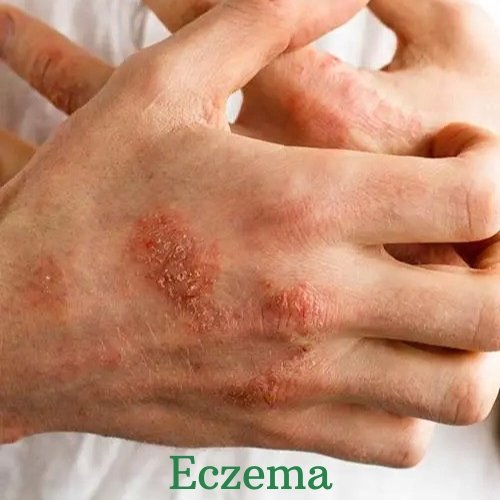Is Dermatitis Spreadable? Common Causes, and Treatment
Introduction
Have you ever wondered, is dermatitis spreadable? If you’ve experienced itchy, irritated skin, you’re probably familiar with the uneasy feeling that comes with visible skin issues. Unfortunately, with that comes a lot of myths, especially about whether dermatitis can spread from person to person. Here, we’ll break down the real causes, common myths, and effective treatments so you can feel more confident and well-informed.
Why Understanding Dermatitis Matters
Dermatitis affects millions, but misconceptions often lead people to misunderstand how it works. Knowing the truth about it helps in managing the condition effectively and reduces unnecessary social stigma.
Brief Overview of Dermatitis and Its Types
Dermatitis refers to skin inflammation that can cause redness, itching, and irritation. There are various types, each with distinct causes and symptoms, and contrary to popular belief, most forms are not contagious.
Is Dermatitis Spreadable? Unpacking the Question
Common Misconceptions about Dermatitis
The first myth to debunk is the idea that all skin conditions are contagious. Dermatitis, while uncomfortable and often visible, is generally not spreadable. There are some rare cases where infections accompany dermatitis, but even then, it’s not typically spreadable by touch alone.
Understanding Contagious vs. Non-Contagious Skin Conditions
Many confuse dermatitis with conditions like ringworm or scabies, which are contagious. Dermatitis, however, is fundamentally different. It’s not an infection but rather an immune or allergic response within the skin.
Common Myths About Dermatitis
Myth #1: Dermatitis Can Spread Through Physical Contact
The idea that you can “catch” dermatitis from someone else’s skin is false. Dermatitis stems from the immune system or a reaction to allergens, not from bacteria or viruses that transfer through touch.
Myth #2: All Types of Dermatitis Are the Same
Not all dermatitis is alike! Atopic dermatitis, contact dermatitis, seborrheic dermatitis, and others each have unique triggers, treatments, and symptoms, none of which are contagious.
Myth #3: Dermatitis Is Caused by Poor Hygiene
Dermatitis isn’t due to poor hygiene. While cleaning the skin properly can reduce irritants, dermatitis can affect anyone, regardless of their cleanliness.
Myth #4: Dermatitis Can Spread Through Shared Objects
Unlike infections like athlete’s foot, dermatitis isn’t spreadable through sharing towels, clothing, or other personal items.
Facts About Dermatitis
Dermatitis and Contagion – The Real Story
To put it simply, is dermatitis spreadable? The answer is largely no. Most types of dermatitis result from individual immune responses rather than external agents.
Conditions Often Mistaken for Dermatitis
Some fungal or bacterial infections can resemble dermatitis, but dermatologists distinguish these based on symptoms and tests. Infections may need isolation or specific treatments, unlike dermatitis.
Causes of Dermatitis
Genetic Factors
Genetics plays a big role in conditions like atopic dermatitis. If a family member has it, you may be more prone to similar skin issues, though this doesn’t mean it’s spreadable.
Environmental Triggers
Environmental triggers, like cold weather, dust, and pollen, can flare up dermatitis symptoms. But these triggers don’t make it spreadable.
Lifestyle and Allergies
Certain foods, stress levels, and lifestyle habits also impact dermatitis but have no bearing on whether it spreads.
Types of Dermatitis and Their Symptoms
Atopic Dermatitis (Eczema)
Often called eczema, atopic dermatitis is common in children and triggered by immune responses. It’s itchy and inflamed but not contagious.
Contact Dermatitis
Contact dermatitis occurs when the skin reacts to direct contact with allergens or irritants like chemicals, metals, or even poison ivy. It can be painful and unsightly but does not spread to others.
Seborrheic Dermatitis
Seborrheic dermatitis causes scaly patches, particularly on oily areas like the scalp. Despite affecting the scalp, it’s not spreadable and is often associated with yeast growth on the skin.
Stasis Dermatitis
This type affects people with circulation issues, leading to swelling and discoloration. It’s confined to the individual and won’t spread to others.
Treatment Options for Dermatitis
Topical Treatments
Topical steroids, moisturizers, and medicated creams are often prescribed to reduce itching and inflammation. These treatments focus on soothing symptoms rather than treating it as a contagious condition.
Lifestyle Adjustments and Home Remedies
Simple steps like moisturizing daily, using fragrance-free cream, and wearing breathable fabrics can make a significant difference in managing dermatitis.
Medical Interventions for Severe Cases
For intense cases, doctors might prescribe oral medications or UV therapy, especially for chronic types like atopic dermatitis.
Preventing Dermatitis Flare-Ups
Daily Skincare Habits
Gentle cleansing, regular moisturizing, and using hypoallergenic products can help reduce flare-ups, making dermatitis easier to manage in the long run.
Environmental Management
Avoiding irritants like harsh soaps, synthetic materials, and dry air can keep the skin calmer, lessening symptoms without needing to worry about spreading it.
Conclusion
So, is dermatitis spreadable? The answer is almost always a reassuring “no.” While dermatitis can be bothersome and cause noticeable symptoms, it remains a condition largely influenced by genetics, environment, and immune responses, not by transmission. Knowing the facts helps in reducing stigma and empowers those affected to manage their symptoms with confidence.
FAQs About Dermatitis
Can dermatitis spread to other parts of my body?
Yes, dermatitis can appear on different parts of the body, especially in response to allergens or irritants. However, this isn’t the same as “spreading” contagiously.
Is dermatitis spreadable to family members?
No, dermatitis is not contagious. Family members may be genetically predisposed, but it won’t spread through physical contact.
Can a poor diet cause dermatitis?
Diet alone isn’t typically a cause, though certain food allergies can trigger flare-ups for those with sensitive skin.
Does stress worsen dermatitis?
Yes, stress can exacerbate symptoms in many people with dermatitis, particularly with atopic dermatitis.
Can dermatitis be cured completely?
Dermatitis can be managed effectively, but some types may be lifelong. Treatment focuses on reducing symptoms and flare-ups rather than a complete cure.
To read more articles click here.






